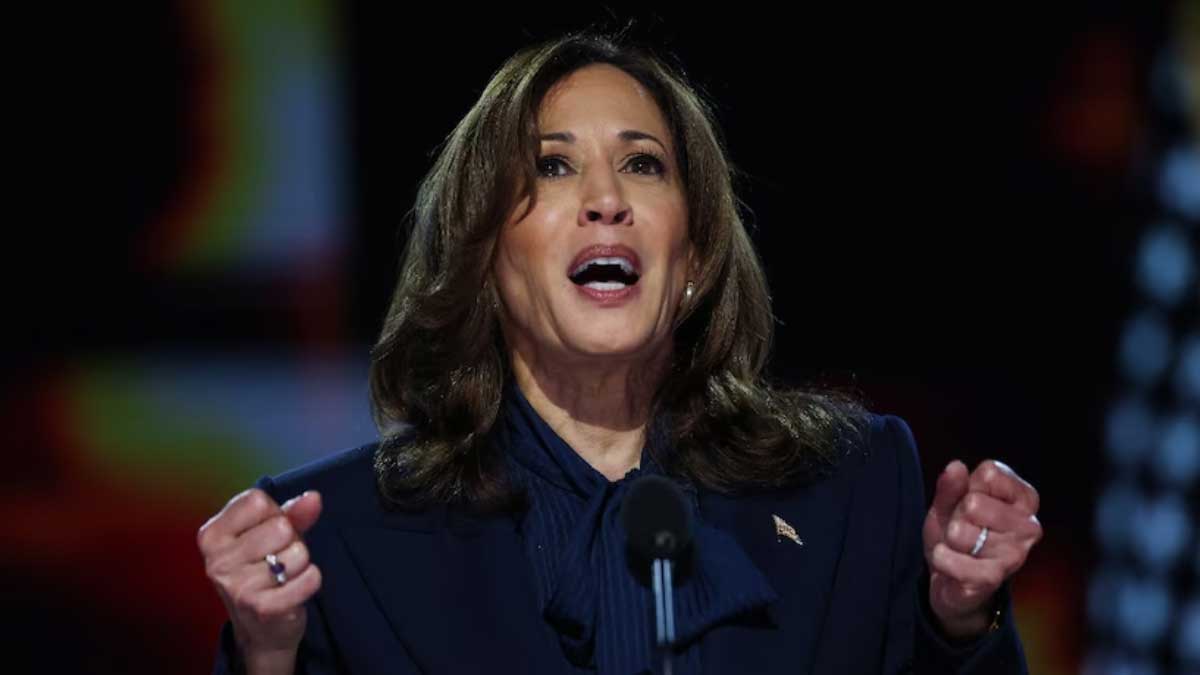- Home
- Billionaires
- Investing Newsletters
- 193CC 1000
- Article Layout 2
- Article Layout 3
- Article Layout 4
- Article Layout 5
- Article Layout 6
- Article Layout 7
- Article Layout 8
- Article Layout 9
- Article Layout 10
- Article Layout 11
- Article Layout 12
- Article Layout 13
- Article Layout 14
- Article Sidebar
- Post Format
- pages
- Archive Layouts
- Post Gallery
- Post Video Background
- Post Review
- Sponsored Post
- Leadership
- Business
- Money
- Small Business
- Innovation
- Shop
Recent Posts
Harris’ Path to Victory Narrows as Trump Wins Key States

In the latest developments of Election Day 2024, Vice President Kamala Harris faces a narrowing path to victory after former President Donald Trump gained an edge by securing wins in Georgia and North Carolina. With polls closed and early race calls from The Associated Press, Trump now holds 247 electoral votes, leaving Harris with 210 and trailing Trump in several battleground states. The key battlegrounds that are too close to call include five states crucial to Harris’ chance at reaching 270 electoral votes.
The victory in Georgia and North Carolina has significantly reduced Harris’ opportunities to win the presidency. These two southeastern states were essential to her strategy, and their loss now makes her pathway to the White House much more difficult. Harris remains heavily reliant on the so-called “blue wall” states of Pennsylvania, Wisconsin, and Michigan—states that have long been Democratic strongholds but are currently leaning towards Trump or are too close to call.
Despite her challenges, Harris still has a narrow chance of securing exactly 270 electoral votes if she wins all three of these critical states—Pennsylvania, Wisconsin, and Michigan—along with all the non-swing states that President Joe Biden won in 2020. However, the race is not in her favor as she is currently trailing in all three of the “blue wall” states. Her situation is particularly dire in Pennsylvania, which is now a must-win state for Harris. If Trump were to win Pennsylvania, along with the other states he carried in 2020, he would clinch the 270 electoral votes necessary for a second term.
Harris could still theoretically win if she manages to secure Pennsylvania, Arizona, and Michigan, allowing her to lose Wisconsin. Alternatively, she might still reach victory by winning Pennsylvania, Wisconsin, Arizona, and Nevada, while losing Michigan. However, these scenarios are increasingly unlikely, especially as Trump continues to make gains across critical battleground states.
The situation has become increasingly tense as Harris’ campaign focuses on attacking Trump’s record and warning about the consequences of his potential re-election. With Trump’s solid foothold in the southeastern battlegrounds, Harris’ focus has turned to winning over key northern states and potentially shifting the balance in her favor. Her campaign has tried to rally voters by emphasizing the threat Trump poses to the nation, labeling him as a fascist, and painting his policies as dangerous for American democracy.
If Harris were to be elected, she would make history as the first woman and the first person of South Asian descent to take office in the White House. Her rise to the top of the Democratic ticket came after Biden’s unexpected withdrawal, just hours after announcing his decision to step aside. Biden’s choice to step down followed a tense debate with Trump, during which Biden struggled to manage his party’s internal divisions. Despite this rocky moment, the Democratic Party quickly coalesced around Harris, who emerged as the clear frontrunner in the race.
Harris’ path to the nomination was shaped by her political career, which began in California as San Francisco’s district attorney and later as the state’s first female attorney general. She continued to build her political reputation by serving in the U.S. Senate from 2017. However, her campaign to replace Biden has faced challenges, particularly with the short campaign timeline and a difficult balancing act between rallying the Democratic base and addressing criticisms of Biden’s administration.
In her campaign, Harris has primarily focused on criticizing Trump and warning about the dangers of his policies if he wins a second term. She has teamed up with prominent anti-Trump Republicans like former Representative Liz Cheney, rallying opposition against him. Harris has also made clear her concerns about Trump’s vision of retribution against his political enemies. Her public criticisms have been met with attacks from Trump, who has branded her as a pawn of the Democratic Party. Trump’s derisive nickname for Harris, “lyin’ Kamala,” has become a central element of his rhetoric.
Beyond his attacks on Harris, Trump has claimed that she is inauthentic and accused her of fabricating her college job history. He also questioned her racial identity, in one of his most inflammatory remarks during the campaign. In addition to challenging Harris’ personal and political integrity, Trump has blamed her for the surge in illegal immigration and criticized her handling of inflation. He has also disparaged her intelligence, repeatedly calling her “lazy” and claiming she has a “low IQ.”
While Harris has had to defend herself against these attacks, she has also focused on pushing forward a progressive agenda, even as she has faced scrutiny over her policy positions. She has distanced herself from some of her more radical proposals, such as a federal ban on fracking and decriminalizing illegal border crossings, both of which she has publicly walked back. Other policy proposals, including the possibility of decriminalizing prostitution and supporting slavery reparations for Black Americans, remain unclear, with Harris refusing to clarify her position on these issues.
In terms of economic policy, Harris has pledged to help the middle class by promising not to raise taxes on those making $400,000 or less, implementing a federal ban on price gouging, and providing $25,000 in down payment assistance to first-time homebuyers. She has also committed to expanding the child tax credit for lower- and middle-class families, aiming to provide significant relief to households struggling with the costs of living. These economic proposals have been central to her message of promoting fairness and fighting for working Americans in a time of rising economic uncertainty.
As Election Day progresses, the race between Trump and Harris is growing increasingly tight. Harris, who had once been seen as a rising star within the Democratic Party, is now fighting for her political survival. As the margins between the candidates narrow, it remains to be seen whether Harris can mount a successful comeback in the battleground states she needs to win to secure the presidency. Trump’s early victories and ongoing momentum suggest that the battle for the White House in 2024 will remain fiercely contested until the final votes are counted.
Recent Posts
Categories
- 193cc Digital Assets2
- 5G1
- Aerospace & Defense46
- AI37
- Arts3
- Banking & Insurance11
- Big Data3
- Billionaires449
- Boats & Planes1
- Business328
- Careers13
- Cars & Bikes76
- CEO Network1
- CFO Network17
- CHRO Network1
- CIO Network1
- Cloud10
- CMO Network18
- Commercial Real Estate7
- Consultant1
- Consumer Tech180
- CxO1
- Cybersecurity68
- Dining1
- Diversity, Equity & Inclusion4
- Education7
- Energy8
- Enterprise Tech29
- Events11
- Fintech1
- Food & Drink2
- Franchises1
- Freelance1
- Future Of Work2
- Games141
- GIG1
- Healthcare78
- Hollywood & Entertainment186
- Houses1
- Innovation42
- Investing2
- Investing Newsletters4
- Leadership65
- Lifestyle11
- Manufacturing1
- Markets20
- Media193
- Mobile phone1
- Money13
- Personal Finance2
- Policy567
- Real Estate1
- Research6
- Retail1
- Retirement1
- Small Business1
- SportsMoney33
- Style & Beauty1
- Success Income1
- Taxes2
- Travel10
- Uncategorized8
- Vices1
- Watches & Jewelry2
- world's billionaires418
Related Articles
Trump Moves $4B Stake in Truth Social Parent, Stock Drops 6%
Donald Trump recently transferred his 57% stake in Trump Media & Technology...
By 193cc Agency CouncilDecember 20, 2024House Rejects Trump-Backed Funding Bill, Shutdown Looms
The U.S. House of Representatives rejected a new government funding bill on...
By 193cc Agency CouncilDecember 20, 2024Trump Named Time’s Person of the Year for Second Time
On Thursday, Time magazine honored Donald Trump as its “Person of the...
By 193cc Agency CouncilDecember 12, 2024Meta Donates $1 Million to Trump’s Inaugural Fund
Meta, the parent company of Facebook and Instagram, has confirmed a $1...
By 193cc Agency CouncilDecember 12, 2024















Leave a comment